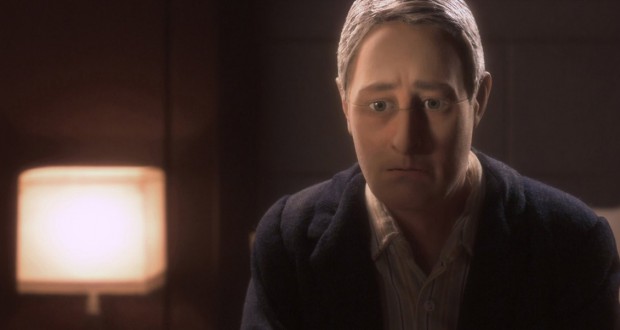We’re now in November (at least at time of writing), so the early ruminations on what will feature in my Best of and Worst of 2016 list has begun. There is every chance that I will see something to slot in the top or bottom of my rankings before the year is out, but the overall picture has been established. From a catalogue of well over 50 cinematic releases I saw this year (not including re-releases and remasterings), I have to sift the worthiest names. Now here’s the difficult part…
If it were simply a matter of picking the best then we have a number of criteria to pick from. Often when citing my favourite all time films, I go for those I have come back to again and again. It’s a simple enough logic: those films I have willing expended time to see again are those I value the most. Sound and in many ways true but the problem is that this privileges easy viewing over weighty and substantial films. No matter how you slice it, undemanding films of modest length are easy to get through and that doesn’t equate to greatness. Great cinema is not afraid of being difficult or challenging. I never sit down and watch Apocalypse Now as a quick relaxing jaunt after work, but I still recognise that it is a more substantive work than something nice and easy I have indulged in repeatedly like Matilda.
But we must be wary of the inverse. Too often, critical approaches to cinematic canon fetishise obtuse, depressing and lengthy works because they are regarded as more serious. These works don’t stoop to the level of mere entertainment because they deter the unthinking and saccharine positive reinforcement demanded by the popcorn-guzzling stooges perceived to make up the general cinema-going audience. This is one of the reasons dramas do so much better at awards shows. Now, whilst it is certainly true that attendance and financial success is no measure of quality, we should still be able to find meaning, virtue and mastery in works that are optimistic, funny and short (brevity being the soul of wit and all). Not that the good examples of these do well in the box office either. All critics have to be wary of pandering to the snobbery of the unnecessarily maudlin or pretentious.
There is no science to subjective assessment in this manner so a breadth of sensibilities seems advisable but what if in a given year the depressing dramatic fare is significantly outpacing the lighter and comedic stuff by miles. Now, on a personal preference, this hardly matters. You like what you like and admire what you admire. On a list for a readership though, do you want to fill out your end of year summation with a selection of films that are tonally or formally similar? Is it not worth offering up a little more variety so that those few who take these as viewing suggestions get a good range of experience? Furthermore, if one is claiming that the list represents the best films of a given year, is one willing to simply limit the selection to pieces that you personally enjoyed or venerated? I am not suggesting that I would list a film I did not admire but perhaps something would be bumped up beyond its merits as viewed by me because it is culturally or industrially significant. Whether or not I think it needs to be that high, if the point of the list is to recommend something to the readers, should I not be advising them to ensure they view this hypothetically influential piece?
And then we come onto the predictive part of the list. As much as an end-of-year list is meant to be an honest assessment of the works of quality that came out (or those devoid of any, in the case of the worst-of list), you end up crystallising your viewpoint of a given moment when it is likely to change. There were films I were sure would make my Top 5 this year which I have since cooled on. Others have risen in my estimation with a little distance. And as much as things change in hindsight, when writing it up, I’m probably going to be looking to the future as well. Like so many of the clamouring multitude of critics on the internet, when writing up my list I am trying to stake my claim on what the films you will (or should) remember from this year are. It’s either an endeavour to stop a handful of people from overlooking a gem that looks to be ignored by the masses, or it’s an attempt to vindicate my critical skills by spotting the big hitters that everyone agrees were outstanding.
But enough of the general: what am I actually deliberating on this year? Compared to 2015 which I felt was a case of a few standouts and a lot of decent to middling movies, 2016 seems like an embarrassment of riches. My main problem appears to be representing a good selection of films. I can be assured that there’s enough for me to chose from that I can settle on a good list no matter what, so concerns about posterity or vindication go out the window. How many documentaries do I want in my Top 5? My Nazi Legacy was undoubtedly an important and insightful film but was distinctly televisual. My Scientology Movie was more formally sophisticated but did it have as much to say? There are films with similar subject matter as My Nazi Legacy also reflects a lot of the aftermath of events depicted in Holocaust drama Son of Saul. From those very dark and very weighty topics, perhaps we want something with a comedic edge like Captain Fantastic or Youth? The list is also a chance to promote lesser known films so excellent foreign cinema like Rams and Embrace of the Serpent are being considered. We shouldn’t be afraid of genre either so fantasy Tale of Tales could be a estimable option, but so too could historical horror film Childhood of a Leader. Then there’s the need to represent the homeland so I could always throw in High Rise or A Bigger Splash as examples of great British films.
And that’s just a few of those I am considering. You see my predicament.
 Pop Verse Pop Culture Universe
Pop Verse Pop Culture Universe









